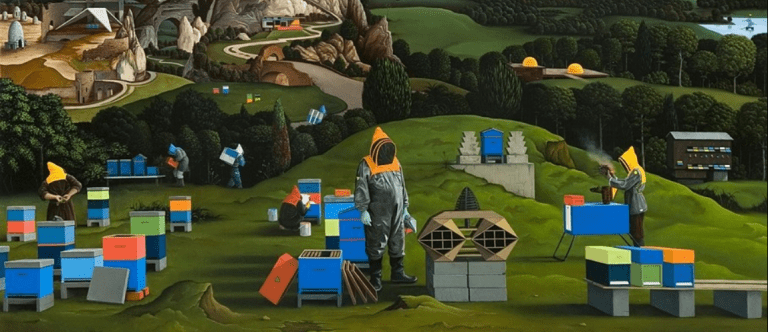Reading any kind of fiction has been weird this last month – as if the destruction of ‘normal’ context removes or shifts the resonances, and meaning is harder to recognise. I was just beginning Mantel’s beautiful beast, The Mirror and the Light, as the crisis became a pandemic, and life altered each day. For a couple of weeks, I struggled to relate, to find the thread that linked the humanity in that story to the version of it I knew now.
At the same time, I was scrambling through all my anthologies and collections of fantastical short stories, and dredging up research I’d done around fantastic fiction, as I put together a new summer course for writers. I half-remembered quotes about the role of fantastic fiction in strange times, and I wanted to see if they rang true today, at the strangest time I have been through.
In the mid-1990s (in From the Beast to the Blonde), Marina Warner wrote:
‘…in the last decade of the century, in conditions of radical change on the one hand, and stagnation on the other, with ever increasing fragmentation and widening polarities, with national borders disappearing in some places and returning with a bloody vengeance in others, as a millenarian feeling of ecological catastrophe gathers momentum, and the need to belong grows ever more rampant as it becomes more frustrated, there has been a strongly marked shift towards fantasy as a mode of understanding, as an ingredient in survival, as a level against the worst aspects of the status quo and the direction it is taking.’
In 2009, Ursula Le Guin was quoted (in The Secret History of Science Fiction) as writing:
‘At this point, realism is perhaps the least adequate means of understanding or portraying the incredible realities of our existence. A scientist who creates a monster in his laboratory; a librarian in the library of Babel; a wizard unable to cast a spell… all these may be precise and profound metaphors of the human condition. The fantasist, whether he uses the ancient archetypes of myth and legend or the younger ones of science and technology, may be talking as seriously as any sociologist – and a good deal more directly – about human life as it is lived, and as it might be lived, and as it ought to be lived.’
Both of these feel particularly apposite for this frightening new era. I also think of Carol Emshwiller’s writing about fantastic fiction, in which she recognises resonance as the vital element. This is something vaguer, deeper, than allegory or symbolism, working on a subconscious level. She writes of Kafka, ‘I like Kafka because his stories resonate beyond the story. And I like that you can’t quite put your finger on the meanings. It’s more a feeling that it’s telling you than is on the page.’
That feeling, signalling meaning but not dictating it: I think that is what drew me in, as I began opening up the fantastic fiction anthologies on my shelf. Good fantastic stories do not tell us what to think about an aspect of humanity. They invite possibility, questions, even projection, but most of all they allow us to explore without having to conclude. They offer hope of change, too, without prescribing. I suspect this is why they feel not only approachable but necessary, in times when we can’t yet nail down the narrative, because we have no ending, no perspective. These stories have no intention of representing reality, which is a relief and a boon, and yet they speak to the mind as it flails in uncertainty. They resonate, and so even if they are disturbing, they reassure. If we can survive the uncertainty that is forced upon us by the fictional premise, perhaps we can do the same in real life.
There’s much more I could say, about cognitive hesitation in the face of the fantastic; about enchantment; about the edges of experience where things become weird, uncanny, too strange not to be true. Instead, I’m going to share some links to high quality fantastic fiction you can read online, all by authors whose work has lodged in my brain, and which I return to often. I hope it offers you escape, rumination, hope, pleasure, courage.
If you’re a writer looking to read more fantastic fiction, and produce some of your own, the course on fantastic literature I’m going to teach online this summer is here. I hope it’s going to make us all saner, more productive, and more connected.
Happy reading, and writing,
Zoe

